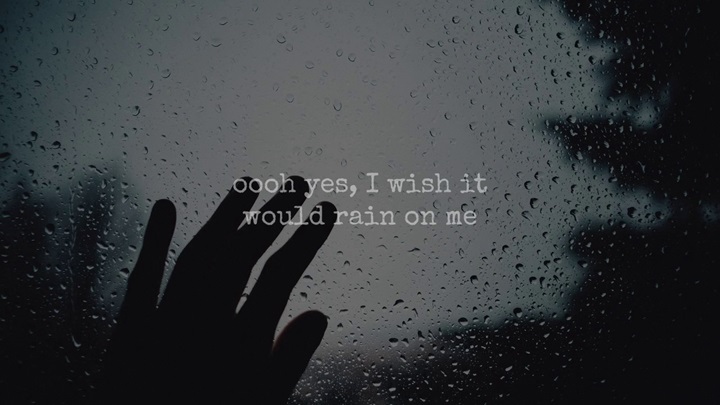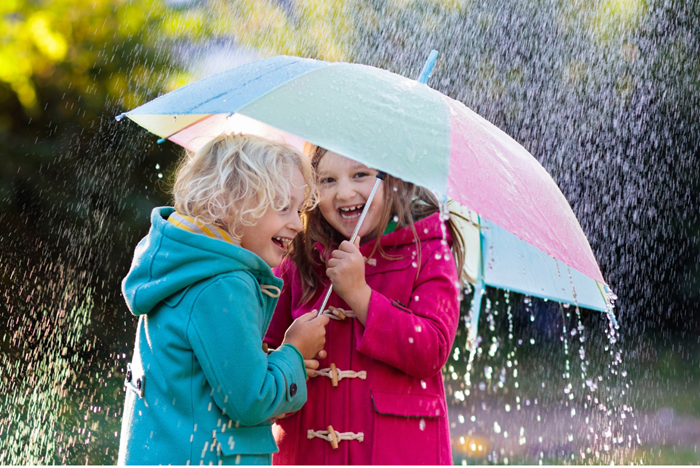Rain has always held a special place in human emotions, symbolizing a wide range of feelings, from hope and renewal to melancholy and longing. For many, the phrase “I wish it would rain” conveys a desire for relief, change, or even escape. Whether it’s the heavy downpour that soothes the soul or the soft drizzle that brings peace to the mind, rain plays a significant role in shaping our emotional landscape. In this article, we’ll explore the symbolic meaning of rain, its emotional impact, and why we often find ourselves wishing for it.
The Emotional Significance of Rain.
Rain is more than just a natural phenomenon; it has long been a metaphor for human emotions. From poetry to song lyrics, rain has been used to express sorrow, longing, and even joy. People often associate rain with cleansing and renewal. The sound of raindrops hitting the roof can bring a sense of calm, washing away stress and anxiety.
Rain as a Symbol of Renewal
One of the most powerful metaphors rain represents is that of renewal. Just as rain nourishes the earth, it can symbolize a fresh start for individuals. In difficult times, many people find solace in the idea that rain can wash away the past and bring new opportunities. It’s a reminder that even after the darkest storms, the sun will eventually break through.
Rain as a Reflection of Sorrow
On the flip side, rain is also tied to feelings of sadness or longing. The phrase “I wish it would rain” often signifies an internal struggle or a yearning for something that seems out of reach. In literature and film, rain often accompanies moments of deep emotional distress, where characters experience a sense of loss, regret, or heartache.
The Psychological Impact of Rain
Have you ever noticed how your mood changes when it rains? For some, rain brings about a sense of calm and peace, while others might feel more melancholic or introspective. The weather can have a profound effect on mental health, and rain, in particular, has both positive and negative impacts.
The Comforting Effect of Rain
Rain can evoke a sense of comfort and nostalgia. The gentle sound of rain falling on a windowpane can create an intimate atmosphere that encourages relaxation. Many people find themselves drawn to warm blankets, a cup of tea, or a good book when it rains. The rainy weather becomes an opportunity for self-care and introspection, giving individuals a chance to rest and recharge.
The Sadness and Reflection Associated with Rain
For others, rain is linked to feelings of isolation and sadness. The dark, overcast skies and continuous drizzle can sometimes amplify feelings of loneliness. Some people may feel a sense of emptiness when the rain falls, longing for connection or answers. It’s a common response for individuals going through a tough time to feel like the world around them is reflecting their inner turmoil.
“I Wish It Would Rain” – A Cry for Change
The phrase “I wish it would rain” can be seen as a cry for change, a desire for something different in one’s life. Whether it’s a need for emotional relief, a longing for a fresh start, or simply the desire to escape the mundane, the wish for rain represents a yearning for transformation. It reflects a universal human experience: the desire for something greater than what we currently have.
Rain as a Catalyst for Change
Sometimes, when we feel stuck or overwhelmed, we look to nature for answers. The arrival of rain can be seen as a symbol of change, encouraging individuals to embrace new beginnings. It represents the idea that just as the earth is nourished by rain, people too can grow and evolve after a period of hardship. The wish for rain becomes a metaphor for wishing for that change — whether it’s a new opportunity, healing from a painful experience, or finding clarity.
Escaping from Reality Through Rain
For some, the wish for rain is a form of escapism. The weight of daily responsibilities or personal struggles can become overwhelming, and the prospect of rain offers a temporary relief. The sound of raindrops can drown out the noise of the world, allowing individuals to retreat into a peaceful, meditative state. It provides an opportunity to escape from the hustle and bustle of life, if only for a short while.
Why Do We Find Comfort in Rain?
Despite its association with sadness for some, rain holds a certain magic. It has the power to connect people to their inner selves, providing a sense of emotional depth and clarity. For those who experience a sense of calm during a storm, rain serves as a comforting presence in times of uncertainty.
The Healing Sound of Rain
There’s something inherently healing about the sound of rain. It’s a natural white noise that can drown out distractions and allow for quiet reflection. This is why rain is often used in mindfulness practices and relaxation techniques. The rhythmic sound of rainfall has been shown to lower stress levels and promote relaxation, allowing people to be present in the moment.
Rain’s Ability to Clear the Mind
Rain also has the power to clear the mind. Just as it washes away dirt and impurities from the earth, rain can help clear negative thoughts and mental clutter. People often find that when it rains, they experience a sense of clarity, a release from the mental fog that may have clouded their judgment. The wish for rain, therefore, may symbolize a deeper need for mental cleansing and emotional release.
“I Wish It Would Rain” in Popular Culture
Rain has long been a subject of fascination in art, literature, and music. From iconic songs like “I Wish It Would Rain” by The Temptations to scenes in films where rain is used to enhance the emotional atmosphere, the symbolism of rain has been deeply embedded in culture.
Songs Inspired by Rain
The song “I Wish It Would Rain” by The Temptations is a perfect example of how rain can be used to express emotional longing. The lyrics of the song reflect the emotional turmoil of someone who is trying to cope with a broken heart. The wish for rain becomes a metaphor for the desire to hide one’s tears and mask the pain. It’s a sentiment that many can relate to, making it a timeless classic.
The Use of Rain in Film
In cinema, rain is often used as a cinematic device to amplify the emotional intensity of a scene. Whether it’s a dramatic moment of despair or a romantic encounter, rain serves to enhance the atmosphere and make the moment more poignant. It’s no wonder that many people associate rain with powerful emotions and deep personal reflection.
FAQs
Q1: What does the phrase “I wish it would rain” symbolize?
A1: The phrase often symbolizes a longing for emotional relief, change, or escape, reflecting a deeper desire for transformation or renewal.
Q2: How does rain affect our mood?
A2: Rain can evoke both comfort and sadness. It may bring a sense of calm and peace, but also amplify feelings of melancholy or introspection.
Q3: Is rain a symbol of renewal in literature?
A3: Yes, rain is frequently used in literature as a symbol of renewal, cleansing, and fresh beginnings.
Q4: How does rain contribute to mindfulness and relaxation?
A4: The sound of rain is often used in mindfulness practices to promote relaxation and clarity, helping to reduce stress and mental clutter.
Q5: Why do people associate rain with sorrow?
A5: Rain can mirror feelings of sadness and longing, often accompanying moments of emotional turmoil in literature and film.
“I wish it would rain” is more than just a simple expression of desire for weather change. It is a reflection of the deep emotional layers we carry with us. Whether it represents a longing for renewal, a wish for escape, or a cry for relief, the desire for rain taps into universal human experiences. It serves as both a symbol of hope and a catalyst for change, reminding us of the profound connection between nature and our emotions. So, the next time you find yourself wishing for rain, take a moment to reflect on the deeper meanings it may hold for you.



